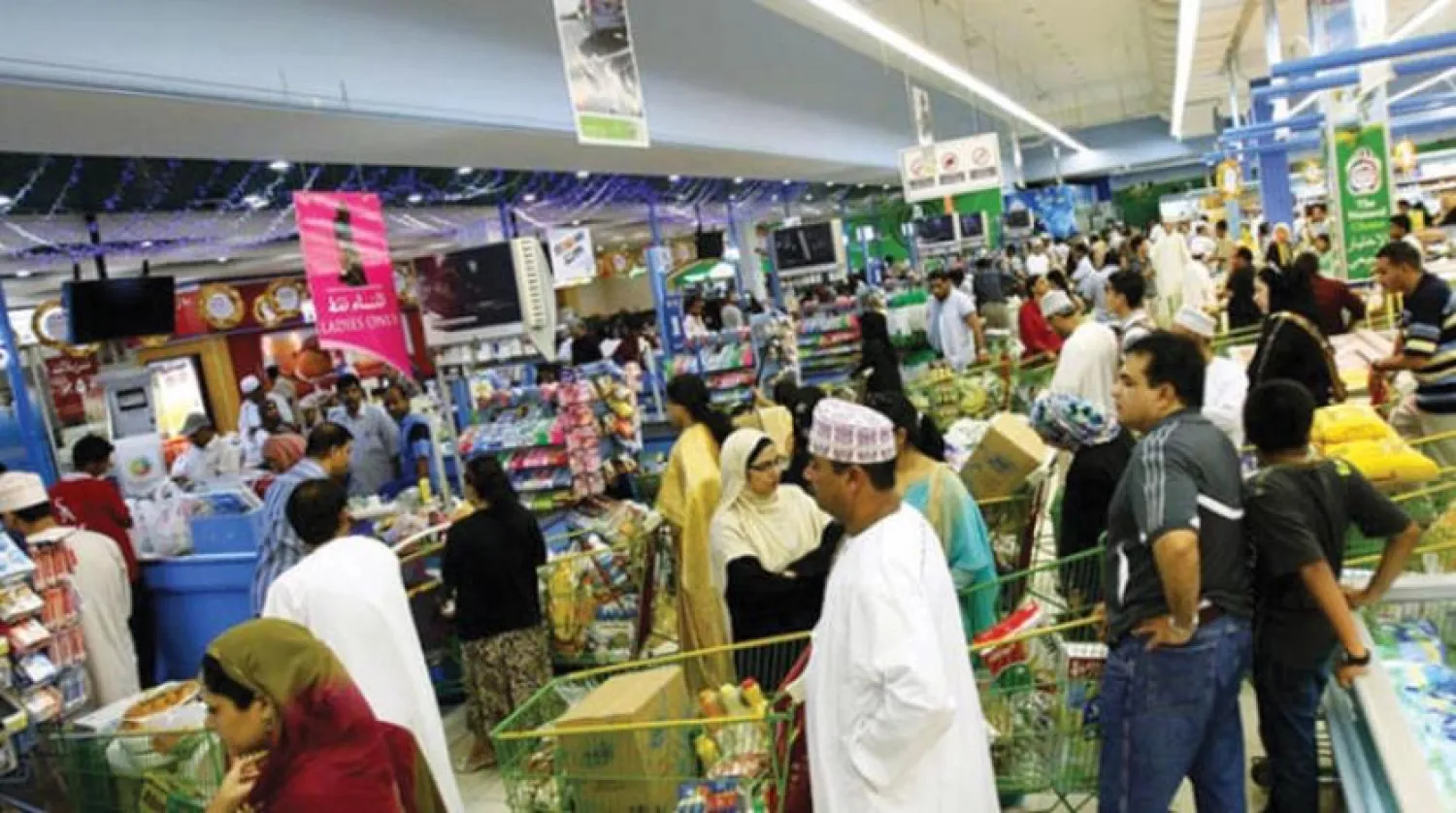The inflation rate of the Consumers Price Index (CPI) in Oman stood at 1.98 percent during December 2022, according to the latest data issued by the National Centre for Statistics and Information (NCSI).
Oman News Agency (ONA) reported on Sunday an increase in the prices of primary groups in December 2022 compared to the corresponding period in 2021.
Food and non-alcoholic beverages rose by 5.4 percent, restaurants and hotels by 4.05 percent, health by 3.82 percent, furniture, household equipment, and routine household maintenance increased by 2.27 percent, and housing, water, electricity, gas, and other fuels saw a 0.63 percent hike.
Inflation declined in the communications group by 0.06 percent and stabilized in the tobacco group.
Prices also went up for oils and fats by 19.49 percent, meats by 8.42 percent, milk, cheese, and eggs by 7.65 percent, fruits by 6.51 percent, non-alcoholic beverages by 5.43 percent, bread and cereals by 5.10 percent, other foodstuffs by 2.75 percent and sugar, jam, honey and sweets by 2.33 percent.
The prices of fish and seafood dropped by 5.80 percent and vegetables by 1.03 percent.
Meanwhile, the Global Integrated Energy Group (OQ) inaugurated a new ammonia plant in Dhofar with a production capacity of 1,000 metric tons per day of liquid ammonia.
ONA reported that the $463 million project contributes to enhancing the utilization of the natural resources of Oman and supporting efforts and plans for economic diversification.
It also aims to promote the export of Omani products to global markets.
CEO of OQ Group Talal al-Awfi confirmed that the plant is working to make the most of the hydrogen-rich gas produced from the Salalah Methanol Plant to maximize its utilization and convert it into ammonia to be marketed to various local, regional, and global markets.
Omani youth represent about 80 percent of the project's total workforce.
Awfi pointed out that the factory recently exported five ammonia shipments via Salalah Port through the OQ Trading Company, the group's trading arm, to enhance Omani exports abroad.
The demand for liquid ammonia is growing steadily in the global markets, as it is included in manufacturing many products such as fertilizers, cleaning products, and refrigeration devices.
Awfi also noted that ammonia produces green hydrogen, a vital OQ Energy Transition Agenda component.
OQ is a globally integrated energy company with roots in Oman, operating in 17 countries. It covers the entire value chain from exploration and production to marketing and distribution of end-user products.
Its fuels and chemicals are sold in over 60 countries worldwide, making it a prominent player in the energy sector









